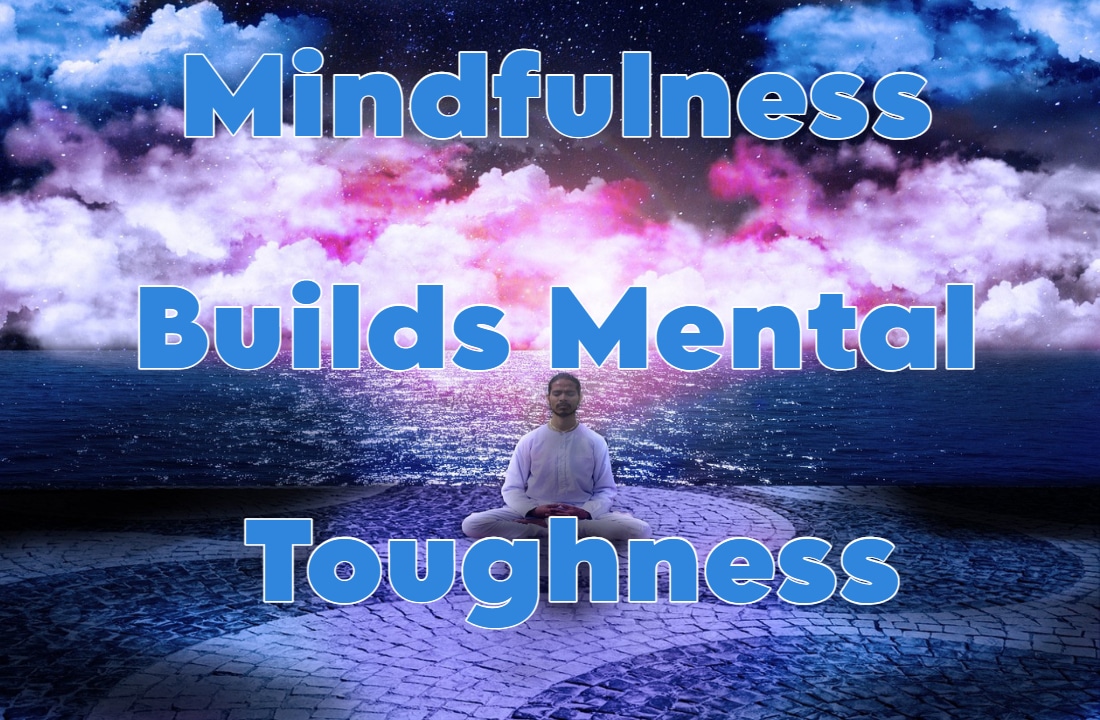In the world of sports, physical training alone does not define an athlete’s success. Mental resilience and emotional stability are equally crucial, especially in high-pressure situations. This mental strength, often referred to as mental toughness, is essential for overcoming challenges, adapting to stressful conditions, and maintaining performance consistency. Mindfulness practices have emerged as effective methods to help athletes cultivate and enhance mental toughness by fostering a focused, calm, and resilient mindset.
Understanding Mental Toughness in Sports
Mental toughness in sports refers to the ability to remain focused, stay composed, and persevere through challenges, irrespective of the circumstances. It embodies qualities such as resilience, emotional stability, and mental endurance. Athletes who exhibit strong mental toughness tend to recover faster from setbacks, make effective decisions under pressure, and maintain optimal performance levels.
Key Components of Mental Toughness
| Component | Description |
|---|---|
| Focus | Maintaining attention on the task, unaffected by distractions. |
| Resilience | Bouncing back from setbacks and failures. |
| Emotional Control | Managing emotions to avoid disruption in performance. |
| Confidence | Belief in one’s ability to overcome challenges and succeed. |
| Perseverance | Consistent effort toward goals, even when facing difficulties. |
The above components form the foundation of mental toughness, helping athletes stay composed under pressure and perform at their best, even in demanding situations.
How Mindfulness Enhances Mental Toughness
Mindfulness is a practice of being fully present and aware of one’s thoughts, feelings, and surroundings in a non-judgmental way. For athletes, this means fostering a heightened state of focus and emotional awareness, which are essential for building mental toughness. Let’s look at some ways in which mindfulness contributes to mental toughness.
1. Improved Focus and Concentration
In competitive sports, maintaining focus is crucial. Mindfulness exercises like focused breathing and body scanning can help athletes tune out distractions and sharpen their concentration.
- Mindfulness Exercise for Focus: Athletes can try mindful breathing exercises before training sessions or competitions to reduce anxiety and remain grounded. This helps them stay focused on their performance rather than external distractions.
- Result: Enhanced focus improves mental toughness, allowing athletes to perform without being affected by external factors like audience pressure or competition.
2. Better Emotional Regulation
Managing emotions is essential in sports, as intense feelings of excitement, frustration, or anxiety can disrupt performance. Mindfulness helps athletes develop emotional regulation skills by fostering self-awareness.
- Mindfulness Technique for Emotional Regulation: Practicing mindfulness meditation can increase an athlete’s awareness of their emotional state, enabling them to respond calmly to stressors.
- Result: This emotional control strengthens mental toughness by preventing emotional reactions from affecting performance.
3. Increased Resilience and Adaptability
Setbacks, losses, and failures are part of any sport. Mental toughness requires athletes to recover from these setbacks and continue striving toward their goals. Mindfulness promotes resilience by encouraging a growth mindset.
- Mindfulness Practice for Resilience: Reflective mindfulness exercises allow athletes to view setbacks as learning experiences, which cultivates resilience and adaptability.
- Result: Athletes develop mental toughness by learning to handle setbacks with a positive, adaptable attitude.
4. Boosted Self-Confidence
Self-confidence is another crucial component of mental toughness. Athletes who lack confidence often experience self-doubt under pressure. Mindfulness helps athletes focus on their strengths and remain aware of their achievements, which boosts confidence.
- Mindfulness Exercise for Confidence: Visualization and affirmations are mindfulness techniques that help athletes visualize success and reinforce positive self-beliefs.
- Result: With regular practice, mindfulness fosters self-confidence, a key element of mental toughness that keeps athletes motivated and focused.

Practical Mindfulness Techniques for Building Mental Toughness
| Technique | Purpose | How It Builds Mental Toughness |
|---|---|---|
| Breathing Exercises | Enhances focus | Helps athletes stay calm and focused on performance. |
| Body Scan Meditation | Builds body awareness | Reduces muscle tension and relieves anxiety. |
| Visualization | Boosts confidence | Encourages positive mindset and goal orientation. |
| Reflection Practices | Enhances resilience | Encourages learning from setbacks and failures. |
| Gratitude Journaling | Increases positive thinking | Improves mood and emotional resilience. |
Each mindfulness technique serves a specific purpose, contributing uniquely to mental toughness by enhancing focus, emotional regulation, and resilience.
Benefits of Mindfulness for Athletes’ Mental Toughness
Mindfulness not only builds mental toughness but also has additional benefits that positively influence an athlete’s performance and overall well-being. Here are some of the ways mindfulness practices can benefit athletes:
- Reduced Anxiety and Stress: Mindfulness lowers stress hormones, reducing anxiety levels and helping athletes perform with a calm mind.
- Enhanced Recovery: Mindfulness can aid in faster physical and mental recovery after intense training sessions.
- Improved Sleep Quality: By reducing stress and improving relaxation, mindfulness promotes better sleep, which is essential for athletic recovery.
- Greater Enjoyment of the Sport: Mindfulness encourages athletes to enjoy the present moment, helping them find joy in their practice and reducing burnout.
Table: Additional Benefits of Mindfulness for Athletes
| Benefit | Description |
|---|---|
| Reduced Anxiety | Lowers stress, promoting a calm and focused mind. |
| Enhanced Recovery | Improves both physical and mental recovery post-training. |
| Better Sleep Quality | Reduces stress levels, enhancing sleep quality and physical recovery. |
| Greater Enjoyment | Increases presence and enjoyment in the sport, reducing burnout. |
FAQs
1. How does mental toughness benefit athletes in competition?
- Mental toughness helps athletes stay focused under pressure, recover quickly from setbacks, and maintain emotional control, which are crucial for competitive success.
2. Can mindfulness practice be included in daily training routines?
- Yes, mindfulness exercises such as breathing exercises, visualization, and body scans can easily be incorporated into training, helping to build mental toughness over time.
3. Is mindfulness beneficial for athletes across all sports?
- Absolutely. Mindfulness can benefit athletes in any sport by enhancing focus, resilience, and emotional stability, which are universal requirements for success.
4. How long does it take to see results in mental toughness with mindfulness practice?
- Some benefits, like increased focus, can be noticed within a few weeks, but significant improvements in mental toughness typically require consistent practice over several months.
5. What is the most effective mindfulness technique for mental toughness?
- While all mindfulness practices can build mental toughness, breathing exercises and visualization are particularly effective for athletes due to their immediate calming effects and focus enhancement.

